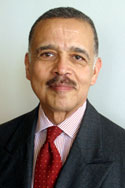 |
|
|
ARCHIVES OF EDITORIALS
January 13, 2005 The road not yet taken The genius of Dr. Martin Luther King Jr. is that his message embodied the greatest aspects of the nation’s principles. The promise of America is best set forth in the Declaration of Independence. That document states: “We hold these truths to be self-evident, that all men are created equal, that they are endowed by their Creator with certain unalienable Rights, that among these are Life, Liberty and the pursuit of Happiness.” While those words are well known to most Americans, the language which immediately follows is not quite so familiar. The Declaration of Independence goes on to state: “That to secure these rights, Governments are instituted among Men, deriving their just powers from the consent of the governed, — that whenever any Form of Government becomes destructive of these ends, it is the Right of the People to alter or to abolish it, and to institute new Government, …” When these stirring words were accepted by the 13 colonies on July 4, 1776, there was a considerable difference of opinion among the signatories as to who was to be included as the “men” who were “created equal.” The states of the Confederacy embraced the “peculiar institution” of slavery, and many of those in the North did not vigorously object. Dr. King recognized, as do many Americans, that the language of the Declaration of Independence espouses virtues and values beyond the human frailties of those who endorsed it. He was convinced that an appeal to the higher nature of Americans would result in legal improvements in the status of African Americans. King believed that “all men” would then include everyone. There were other blacks who had lost faith in the government’s willingness to secure the divinely endowed rights for racial minorities. They formed militant groups committed to the violent confrontation of the government. While one could criticize the effectiveness of their strategy, few recognized that their approach was condoned by the Declaration of Independence. Dr. King took the high road and enlivened the racial conscience of millions of Americans. His leadership of the Civil Rights Movement helped gain passage of the Civil Rights Act of 1964 and the Voting Rights Act of 1965. Federal laws now provide a cause of action for those who are discriminated against in employment, education or at the polls because of race. Now, 36 years after Dr. King’s assassination, there are many who assert that the Civil Rights Movement is still very much alive because of the economic disparity between blacks and whites. Indeed, those differences are disturbing. A recent report by United for a Fair Economy sets forth the following data: There has been no improvement in black family income compared to that of whites since 1968. Black family net worth has grown from 5 percent of whites in 1984 to 16 percent in 2001 ($19,000 compared to $121,000). The rate of poverty among blacks in 2002 was three times greater than the rate for whites. White family homeownership has climbed from 65 percent to 75 percent since 1970, while the rate from black families has risen from 42 percent to 48 percent. Dr. King understood that a change in the federal economic policies to benefit the underprivileged will result from political action rather than a civil rights strategy of civil disobedience. That is why at the time of his death Dr. King was mobilizing the interracial Poor People’s Movement. It is time for civil rights leaders to carry on Dr. King’s legacy by building a political coalition to include whites, Asians and Latinos who can benefit from more caring federal policies.
|
